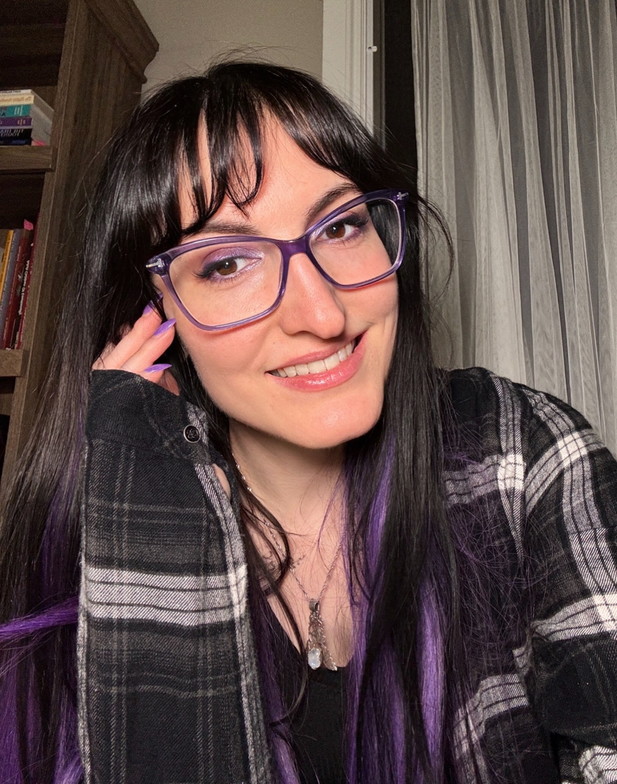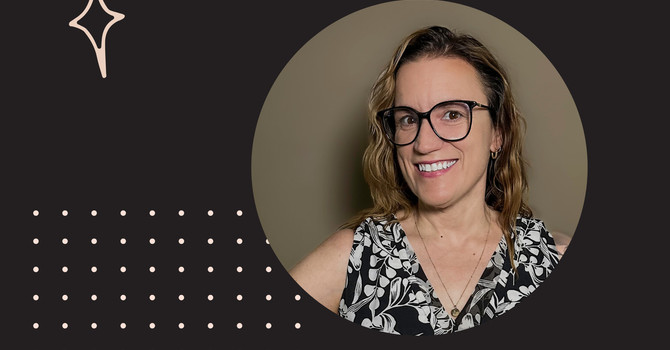
This blog is about spotlighting one of our resident therapists, Cassiann Procenko, Licensed Clinical Social Worker. We asked Cassiann some questions to help everyone get to know her better. Read below to find out what Cassiann had to say!
1. What drew you to the field of social work?
I was drawn to social work because I’ve always been the kind of person who notices what’s beneath the surface. I wanted to be someone who could offer steadiness in the storm, especially for children and teens navigating emotional overwhelm, and adults trying to untangle years of learned patterns. My passion for this work started when I was in high school and took a course called Service Learning. It was required to graduate and I was very uninterested in the topic at the time. I never realized how much that one random high school class would change my life.
2. What are you most passionate about in your work?
I am passionate about walking beside clients of all ages as they reconnect with their sense of self, inner calm, and strength. Whether my client is a child struggling with anxiety, a teen overwhelmed by identity or school stress, or an adult unraveling old beliefs, I love helping people rediscover what a sense of safety can feel like.
3. What advice would you give to someone struggling with anxiety or emotional dysregulation?
I would say to stop treating your anxiety like it’s the enemy. Anxiety, and all emotions, are a signal that something in you wants care, wants you to pay attention. My advice is to get curious instead of critical. Ask: What am I needing right now? What part of me is speaking? This shift can help you step closer to that space where healing begins.
4. What do you find most rewarding about being a therapist?
I would say the most rewarding moments are often quiet ones: when a client in my office lets out a sigh of relief and shares, ‘That makes sense’ or when another client realizes they are finally able to allow themselves to choose peace. Witnessing people find their way back to themselves is my favorite part of this work.
5. What is a typical day like for you?
At Aloe Integrative Psychology Group, my day might include a play-based session with a younger client, followed by a conversation with a teen exploring self-worth, and later, a mindful session with an adult navigating grief or transition. I hold space for a wide range of emotional landscapes and I adjust my tools to meet each client where they are.
6. How would you describe your therapy style?
My therapy style is like a journey, a metaphorical walk side by side through your thoughts, feelings, and meaningful moments. I follow your pace and shine light on the parts you may not notice. I bring warmth, curiosity, and respect to every session.
7. What are some common misconceptions about therapy?
I think some people believe therapy has to be serious all the time in order to reach your goals or make the time feel successful. As important as it is to do the work, sometimes the work is allowing yourself to feel the joy, peace, and creativity you didn’t know you needed. Therapy can be fun, especially for children. And it’s not about giving advice, it’s about making space to understand yourself better and develop the tools to feel more at peace in your own life.
8. What are some self-care practices that you recommend to clients?
For kids, I often recommend play that feels free of performance. For teens, movement and journaling. For adults, creating small moments of intentional pause: a walk, a breath, even five minutes of stillness. Across all ages: self-compassion and letting go of perfectionism.
9. What's one thing you wish more people knew about mental health?
I wish more people realized that healing isn’t linear and it takes time for progress to happen. Feelings are not problems to solve, they're messages from our body asking us to pay attention. You’re allowed to feel what you feel and together, we can figure out what that feeling is trying to say.
10. What is a book or resource that has greatly influenced your work?
The Whole-Brain Child for understanding how children and teens process emotion, and Permission to Feel by Marc Brackett for its approach to emotional intelligence. Both have helped me support clients in building self-awareness in age-appropriate, compassionate ways.
11. How do you create a safe and comfortable space for your clients?
I begin with presence. That means slowing down, listening with intention, and letting the client lead. For children, safety might come through play, art, or movement. For teens and adults, it often comes from having the space to speak in their own time and their own way.
12. What motivates you to keep learning and growing as a therapist?
Every client I meet with teaches me something. I pursue continuing education, read, consult with peers, but most of all, I try to stay curious. I believe the best therapists are those who are always learning, always softening, always evolving.
13. What is one piece of advice you would give to someone considering therapy for the first time?
It’s okay to ask for help, in fact, it’s natural to seek the support of another person. We live in a time that prioritizes independence and self-sufficiency, which can make it hard to admit when you need support, or someone to lean on. Therapy is for anyone who wants to feel more connected to themselves. The first step is often the hardest, but once you take it, you might be surprised how natural the process can feel, when it’s the right fit.
If you are interested in talking or working with Cassiann, you can reach her at:
cassiannp@aloepsychology.com
248-341-2431
Dr. Rebecca Kapetansky
Contact Me



